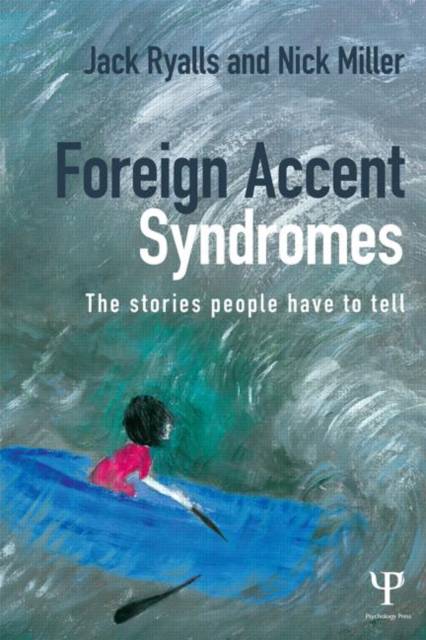
- Retrait gratuit dans votre magasin Club
- 7.000.000 titres dans notre catalogue
- Payer en toute sécurité
- Toujours un magasin près de chez vous
- Retrait gratuit dans votre magasin Club
- 7.000.0000 titres dans notre catalogue
- Payer en toute sécurité
- Toujours un magasin près de chez vous
Foreign Accent Syndromes
The Stories People Have to Tell
Jack Ryalls, Nick MillerDescription
What does it feel like to wake up one day speaking with a foreign accent from a country one has never visited?
Why does someone wake up doing this?
This book seeks to portray the broad and diverse experiences of individuals with a rare neurological speech disorder called Foreign Accent Syndrome (FAS). Through a combination of personal testimony and scientific commentary, the book aims to shed unprecedented light on the understanding of FAS by elucidating the complex links between how the brain produces speech, how listeners perceive speech and the role that accent plays in our perception of self and others.
The first part of the book provides a comprehensive introduction to FAS and covers a number of key subject areas, including:
- The definition and phenomenology of FAS
- A history of research on FAS
- The causes and psychosocial consequences of FAS
- A guide to further reading and a glossary of specialized terms.
The chapters in part two provide a unique insight into the condition through personal testimony and accounts from family members. This collection of 28 testimonies from across the world underlines the importance of listening carefully to patients explain their cases, and in their own words. The final section contains a questionnaire for use by clinicians to support case history taking.
The authors are two leading global experts on FAS, and this is the first volume of its kind to provide such a broad and comprehensive examination of this rare and poorly understood condition. It will be of great interest to practising clinicians in neurology, psychiatry, psychology and speech and language therapy/pathology, as well as students in health disciplines relevant to neurorehabilitation, linguists and also to families and caregivers.
Spécifications
Parties prenantes
- Auteur(s) :
- Editeur:
Contenu
- Nombre de pages :
- 244
- Langue:
- Anglais
Caractéristiques
- EAN:
- 9781848721531
- Date de parution :
- 27-08-14
- Format:
- Livre broché
- Format numérique:
- Trade paperback (VS)
- Dimensions :
- 152 mm x 229 mm
- Poids :
- 385 g

Les avis
Nous publions uniquement les avis qui respectent les conditions requises. Consultez nos conditions pour les avis.






